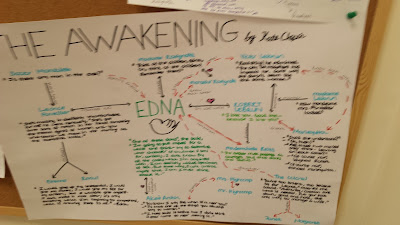My first act of winter break was to hop a bus to my
physiotherapist. I packed up my piles of grading and the little envelope of
merry Christmas letters that students had written, and half an hour later was
telling a disapproving yet oddly friendly (for an Israeli medical professional)
physiotherapist exactly how, in June, I had hurt my ankle in a half-marathon
and been in pain ever since.
The woman quizzed me gently, gave me some exercises to do
and advice on how to manage the pain, and then took me by the shoulders and
looked me deep in the eyes.
“We need to make sure we’re on the same page. You’re not
running the Tel Aviv marathon in February, right?”
 |
| Tel Aviv Teacher Life: Grading at the beach |
She reminded me of my mother. I grinned. “No, ma’am. I just
want to run again. However long it takes.”
I called my mom on the way to the bus stop, ready to share
my glee that I’ll be able to run again.
“Okay, great. But, listen, you won’t do the exercises too much? Not more than she told you to
do them? Don’t overdo it.”
I get it. I tend to overdo things. It’s part of the danger
of teaching. If one line of feedback helps, then a page ought to be even more
useful. If one student needs an ear for their emotional outpourings, ten more
probably do, as well. If I can make a lesson plan better through an hour of
work, twenty hours will give my classes an ironclad brilliance.
But, as my physiotherapist explained, the rest in between
the exercise is as important as the exercise itself. The muscles need time to
strengthen. The philosophies need time to coalesce. The swelling needs time to
go down. The planning needs time to catch up to itself.
In the two days before break, I had no clue how near I was
to straining a ligament. I was giddy with organizing an exuberant Christmas
talent show, deftly preparing my first-years for midterms, composedly torturing
my second-years in practice essays. I assigned Extended Essay supervisors for
the entire junior class and tracked down those who hadn’t submitted proposals
for private chats about their unformed research goals. I listened to one of my
Palestinian students talk about her identity crisis for an hour (it had been at
least two weeks since I’d last touched base with her) and failed to make time
for the student whose cousin was stabbed and in a coma. I wrote three college
recommendations, didn’t snap at five kids at whom I wanted to snap (please
don’t talk to the other ten), taught my first painfully inconclusive TOK class
in three months, failed to navigate school bureaucracy to get a student the
materials she needed for her extended essay experiment, and had a backlog of
four classes’ worth of essays to grade.
Just so you know: I fall somewhere on the lazy side of
teaching. I have colleagues and friends whose lists extend far beyond mine.
There are those who are still responding to their student emails (at this point
in break, I have only responded to the desperate emotional pleas, and the
really funny ones, like my student who wants to solve world hunger, below). I don’t know how they do it.
 |
| Cheeky, eh? |
So now it is break. It is time for rejuvenation. I have graded half
of my classes’ work. I have read books that I am not teaching. I have fallen in
love with Chimamanda Ngozi Adichie’s Americanah, with Safran Foer's Extremely Loud and Incredibly Close,
and the poet Warsan Shire. I have stared at the ocean, sometimes alone and
sometimes not, for hours each day. I have seen Star Wars (it’s good!), Pride
and Prejudice (the play in English—it was not true to the book), and יחסים מסוקנים at HaBimah (it was incredible). I have started to process the
moments when my Palestinian students put me on edge with their claims and
anger, the moments when rightwing Israelis shock me with their claims and their
anger, and the space I live in between them.
I have helped people in simple, concrete ways, ways that are
untroubled by a politics of hierarchy. I have used both of my arms as railings
so that a man who fell off his bike might shakingly climb back up them to a
standing position. I have cleaned my Bubbie’s kitchen and carried a baby
carriage up some steps. I haven’t had to think about the words that I use or
search for meaning in tragedy. I have thanked G-d for the chance to help people without also having the chance to hurt them.
And for the first time in five months, I am running. As soon as I
broke into a stride, I knew my mother and physiotherapist were right. The
euphoria flooding me hit me hard. I don’t know what addiction is like, but I
imagine it’s something of the chemical joy I feel at making my own speed, at
feeling my legs eat up the ground and my muscles carry me over distance. After
several kilometers, my ankle twinged and I remembered that I was supposed to walk a
minute, run a minute. Regretfully, I slowed. But only so that I can run again, and farther, next time.


